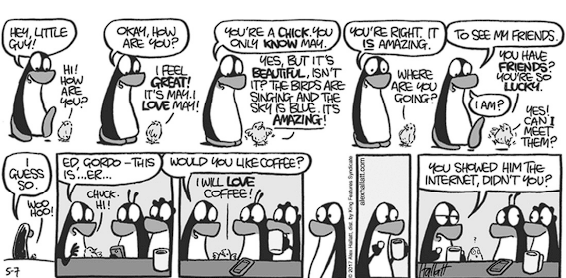Questões de Concurso
Sobre verbos | verbs em inglês
Foram encontradas 1.785 questões
Choose the best option to fill in the blanks CORRECTLY and RESPECTIVELY.
I. ‘She majored in Engineering, _____ she?’
II. ‘She’s lived in England since last year, _____ she?’
III. ‘She’d also lived there 10 years ago, _____ she?’
Choose the best option to fill in the blanks CORRECTLY and RESPECTIVELY.
I. ‘We _________ married.’
II. ‘She _________ married to that guy for 2 years, but they divorced a couple of years ago.’
III. ‘We _________ married last year.’
IV. ‘We _________ married for nearly 1 year now.’
Choose the best option to fill in the blanks CORRECTLY and RESPECTIVELY
I. ‘________ abroad was surely the best experience I’ve ever had
II. ‘________ abroad for one year, and you’ll completely change your mind about your own country.’
III. ‘________ abroad, you need to be resilient.’
Choose the best option to fill in the blanks CORRECTLY and RESPECTIVELY
I. ‘She’d left when you got there, ________ she?’
II. ‘She’d love this dress, ______ she?’
III. ‘She’s worked a lot this week, ______ she?’
Two US banks collapse
Last week, Silicon Valley Bank failed, and it left customers in a tough spot as the government took ______ 1 .
The so-called bank run happened because there ______ 2 news that the bank couldn’t meet its deposit obligations. It means that it had invested the money in various things that weren’t making the money back. Typically, that’s the point where the Federal Deposit Insurance Corporation, ______ 3 insures deposits ______ 4 250,000 dollars, comes in. However, 98% of Silicon Valley Bank customers didn’t have 250,000 dollars but billions of dollars. The government announced that it would step in and secure the depositors, with US president Joe Biden ______ 5 that the US banking system was safe.
Shortly after the fall of Silicon Valley Bank, regulators closed New York-based Signature Bank, too, citing systemic risk. Experts said that these stories would continue repeating themselves because many corporations were overleveraged in dollar debt.
After the collapse, European banks lost 100 billion dollars in value in a week, and despite tough regulations that should make a similar banking failure in Europe unlikely, the contagion is accelerating.
Source: https://www.newsinlevels.com/products/two-usbanks-collapse-level-3/
Concerning the past simple, analyze the sentence below:
He completed his project last week (1st part). She has visited Paris several times in her life (2nd part).
The sentence is:
Concerning the English language vocabulary, check the CORRECT item:
To be _______ of dancing was a certain step ________ ____________ in love. (Jane Austen).
Concerning the present continuous, analyze the sentence below:
She is studying for her final exams this week (1st part). She visited the museum yesterday (2nd part).
The sentence is:




Internet: <alexhallat.com> (adapted).
Judge the following item, according to the preceding comic strip.
In the comic strip, it is possible to find examples of
sentences in the present, past and future tenses.
TEXT III – Tema: As novas tecnologias na sala de aula de Língua Inglesa
Is Technology Taking Over Classrooms?

(Available from: https://citedatthecrossroads.net/eng101f13/2013/10/27/is-technology-taking-over-classrooms/ Accessed on July 8th , 2023)
TEXT III – Tema: As novas tecnologias na sala de aula de Língua Inglesa
Is Technology Taking Over Classrooms?

(Available from: https://citedatthecrossroads.net/eng101f13/2013/10/27/is-technology-taking-over-classrooms/ Accessed on July 8th , 2023)
"The government said it would be up to individual schools to agree the exact rules with teachers." (3º§)
Which verb tense the sentence above is?
My wife: “Look at all the smoke up ahead. Me: Crazy, right? And look at the number of firefighters and ambulances. The accident _________ have been serious.”
“My mom: Did you say goodbye to our neighbors? Me: Why? “My mom: Because they _________ to Italy for a couple of days.”
Choose the CORRECT answer.